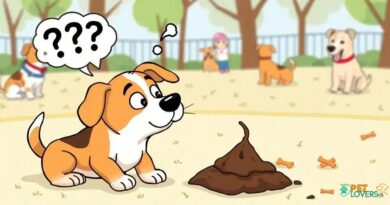What is: Bowel obstruction in dogs
What is Bowel Obstruction in Dogs?
Bowel obstruction in dogs refers to a serious medical condition where the intestines become blocked, preventing the normal passage of food, fluids, and gas. This blockage can occur in various parts of the gastrointestinal tract, including the stomach, small intestine, or large intestine. Understanding the causes, symptoms, and treatment options for bowel obstruction is crucial for dog owners to ensure their pets receive timely medical attention.
Causes of Bowel Obstruction in Dogs
There are several potential causes of bowel obstruction in dogs. One common cause is the ingestion of foreign objects, such as toys, bones, or clothing, which can become lodged in the intestines. Other causes include tumors, strictures, or adhesions from previous surgeries. Additionally, certain medical conditions, such as pancreatitis or inflammatory bowel disease, can contribute to the development of obstructions. Recognizing these causes can help prevent the condition from occurring.
Symptoms of Bowel Obstruction in Dogs
Dogs suffering from bowel obstruction may exhibit a range of symptoms. Common signs include vomiting, loss of appetite, abdominal pain, and lethargy. Owners may also notice changes in bowel movements, such as diarrhea or constipation. In severe cases, dogs may show signs of shock, including rapid breathing and a weak pulse. It is essential for pet owners to monitor their dogs closely and seek veterinary care if they observe any of these symptoms.
Diagnosis of Bowel Obstruction in Dogs
Veterinarians typically diagnose bowel obstruction through a combination of physical examinations, medical history, and diagnostic imaging. X-rays or ultrasounds may be performed to visualize the intestines and identify the location and cause of the blockage. Blood tests may also be conducted to assess the dog’s overall health and detect any underlying issues. Prompt diagnosis is vital to prevent complications and ensure effective treatment.
Treatment Options for Bowel Obstruction in Dogs
The treatment for bowel obstruction in dogs often depends on the severity and cause of the blockage. In some cases, dogs may require surgery to remove the obstruction and repair any damage to the intestines. Non-surgical options, such as fluid therapy and dietary management, may be effective for mild cases. However, surgery is typically necessary for more severe obstructions or when foreign objects are involved. Early intervention is key to a successful outcome.
Post-Treatment Care for Dogs
After treatment for bowel obstruction, dogs may require special care during their recovery. This can include a temporary change in diet, medication to manage pain or inflammation, and regular follow-up visits to the veterinarian. Monitoring the dog’s behavior and bowel movements is crucial during this time to ensure they are recovering properly. Owners should also be vigilant for any signs of recurring issues, as some dogs may be more prone to bowel obstructions in the future.
Preventing Bowel Obstruction in Dogs
Preventing bowel obstruction in dogs involves proactive measures to reduce the risk of foreign object ingestion and other contributing factors. Pet owners should supervise their dogs during playtime, provide appropriate toys, and avoid giving them bones or other items that could splinter. Regular veterinary check-ups can help identify any underlying health issues that may predispose a dog to obstructions. Educating oneself about the signs and symptoms of bowel obstruction can also aid in early detection.
Prognosis for Dogs with Bowel Obstruction
The prognosis for dogs with bowel obstruction largely depends on the cause, severity, and timeliness of treatment. Many dogs recover well after surgical intervention, especially if the obstruction is addressed promptly. However, complications can arise, such as infection or damage to the intestines, which may impact recovery. Regular follow-up care and monitoring are essential to ensure a full recovery and prevent future occurrences.
When to Seek Veterinary Care
Pet owners should seek veterinary care immediately if they suspect their dog has a bowel obstruction. Delaying treatment can lead to serious complications, including intestinal perforation or sepsis. If a dog exhibits symptoms such as persistent vomiting, severe abdominal pain, or lethargy, it is crucial to consult a veterinarian without delay. Early intervention can significantly improve the chances of a successful outcome and the overall health of the dog.



